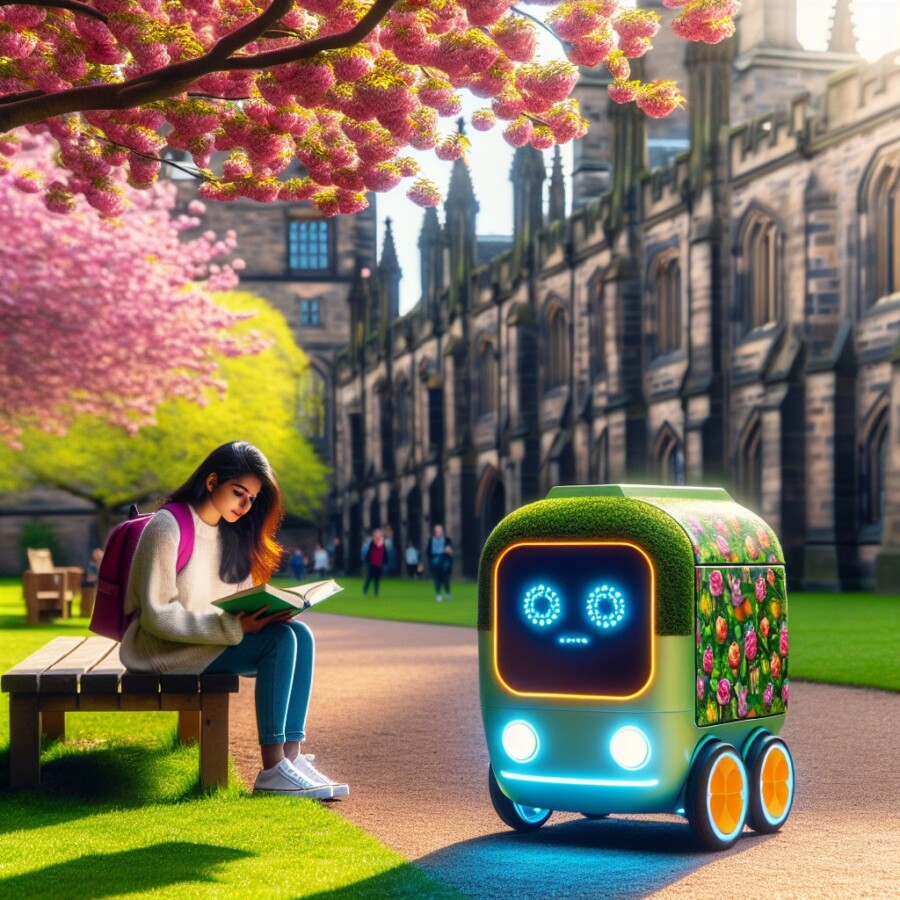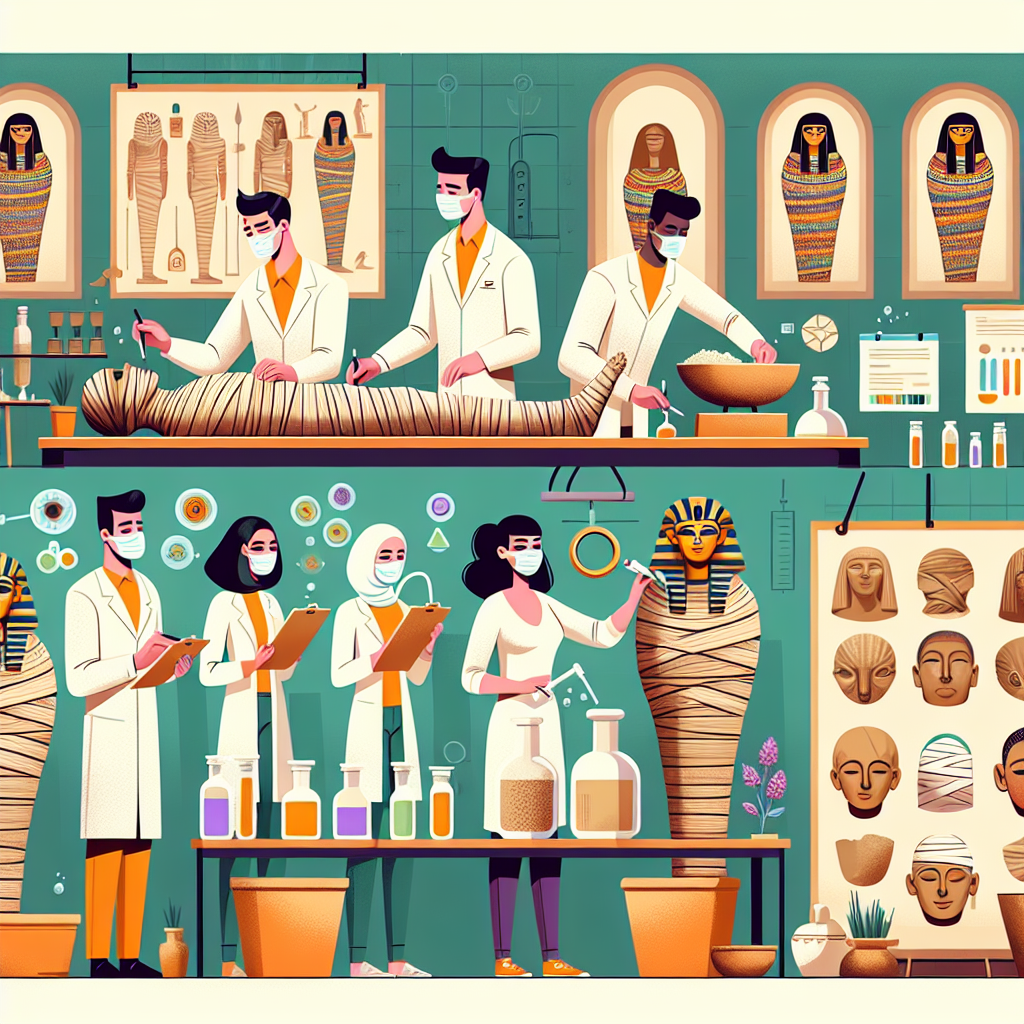Artificial intelligence (AI) is a topic that divides opinions among top songwriters who have worked with popular artists such as Doja Cat, Jonas Brothers, and BTS. However, they all agree that AI can be a useful tool in the music industry. Some songwriters use AI to mimic the voice of the artist they are writing for, to check how a track sounds or to overcome writer’s block. Despite its usefulness, they believe that AI cannot replicate the artistry and human emotion that goes into creating music.
Linden Jay, one of the writers behind Doja Cat’s hit song “Woman,” sees AI as an exciting tool for advancing ideas but not as a replacement for the craft of writing a good song. He uses AI to turn his own voice into the voice of a famous artist to get an idea of whether a song is heading in the right direction. Aaron Horn, Linden’s co-writer, agrees that AI is a tool that can fill in the gaps in the creative process. He compares it to a rhyming dictionary, a platform that suggests rhymes for poems and lyrics.
Jessica Agombar, who wrote “What a Man Gotta Do” for the Jonas Brothers, has found inspiration in AI’s capabilities, particularly in voice mimicking. However, she believes that artistry will always be preserved in organic songwriting and producing, with imperfect vocals and rough sketches. Kamille, known for her work with Little Mix, Mabel, and Kylie Minogue, tries to avoid relying too much on AI. She believes that the key to songwriting is expressing emotion from the heart, which should not be lost as technology advances.
While AI has its positives, these songwriters advise aspiring musicians not to rely too heavily on AI and to embrace their own experiences and humanity. They believe that machines cannot create music on their own and that AI cannot replicate the depth of human emotion. In conclusion, AI can be a valuable tool in the music industry, but it should not replace the artistry and personal touch that comes from human songwriting.
Original news source: Doja Cat and Jonas Brothers songwriters say AI is not to be feared (BBC)
Listen
Slow
Normal
Fast
Group or Classroom Activities
Warm-up Activities:
– News Summary
Instructions: Have students read the article individually or in pairs. Then, ask them to write a summary of the main points of the article in their own words. Afterward, have students share their summaries with the class and discuss any differing perspectives or opinions they noticed.
– Opinion Poll
Instructions: Divide the class into small groups. Assign each group a specific question related to the article, such as “Do you believe AI can replicate the artistry and human emotion in music?” Give the groups time to discuss their opinions and come up with reasons to support their stance. Then, have each group present their arguments to the class and conduct a poll to see which opinion is most popular among the students.
– Word Association
Instructions: Provide the students with a list of words related to the article, such as “artificial intelligence,” “songwriting,” “music industry,” “emotions,” etc. Have the students take turns saying a word from the list and then quickly say the first word that comes to their mind in relation to that word. Encourage them to make connections between the words and discuss their thoughts and associations with the class.
– Sketch It
Instructions: Divide the class into pairs. Assign each pair a specific scene or scenario from the article, such as “a songwriter using AI to mimic the voice of an artist” or “a group of songwriters discussing the pros and cons of AI in music.” Give the pairs time to sketch out a visual representation of their assigned scene. Afterward, have each pair present their sketches to the class and explain their creative choices.
– Future Predictions
Instructions: Ask the students to imagine how AI could further impact the music industry in the future. Have them write down their predictions individually or in pairs, considering both positive and negative effects. Then, have students share their predictions with the class and engage in a discussion about the potential advancements and challenges AI may bring to the music industry.
Comprehension Questions:
1. How do top songwriters feel about the use of AI in the music industry?
2. How do some songwriters use AI in their creative process?
3. According to Linden Jay, what is the role of AI in songwriting?
4. How does Aaron Horn compare AI to a rhyming dictionary?
5. What aspects of AI’s capabilities does Jessica Agombar find inspiring?
6. What does Kamille believe is the key to songwriting?
7. What advice do these songwriters give to aspiring musicians regarding the use of AI?
8. What is the overall conclusion about the use of AI in the music industry?
Go to answers ⇩
Listen and Fill in the Gaps:
Artificial intelligence (AI) is a topic that divides opinions among top songwriters who have worked with (1)______ (2)______s such as Doja Cat, Jonas Brothers, and BTS. However, they all agree that AI can be a useful tool in the music industry. Some songwriters use AI to mimic the voice of the artist they are writing for, to check how a track sounds or to (3)______ writer’s block. Despite its usefulness, they (4)______ that AI cannot replicate the artistry and human emotion that goes into creating music.
(5)______ Jay, one of the writers behind Doja Cat’s hit song “Woman,” sees AI as an exciting tool for advancing ideas but not as a (6)______ for the craft of writing a good song. He uses AI to turn his own (7)______ into the voice of a famous artist to get an idea of whether a song is heading in the right (8)______. Aaron Horn, Linden’s co-writer, agrees that AI is a tool that can fill in the gaps in the creative process. He compares it to a rhyming dictionary, a platform that suggests rhymes for poems and lyrics.
(9)______ Agombar, who (10)______ “What a Man Gotta Do” for the Jonas Brothers, has found (11)______ in AI’s capabilities, particularly in voice mimicking. However, she believes that artistry will always be preserved in (12)______ songwriting and producing, with imperfect vocals and rough sketches. Kamille, known for her work with Little Mix, Mabel, and Kylie Minogue, tries to avoid relying too much on AI. She believes that the key to songwriting is expressing emotion from the heart, which should not be lost as technology (13)______.
While AI has its positives, these songwriters advise (14)______ musicians not to rely too heavily on AI and to embrace their own (15)______ and humanity. They believe that machines cannot create music on their own and that AI cannot (16)______ the depth of human emotion. In conclusion, AI can be a valuable tool in the music industry, but it should not replace the artistry and personal touch that comes from human songwriting.
Go to answers ⇩
Discussion Questions:
Students can ask a partner these questions, or discuss them as a group.
1. What is your opinion on using AI in the music industry?
2. How would you feel if AI was used to mimic your voice in a song you wrote?
3. Do you think AI can fully replicate the artistry and human emotion that goes into creating music? Why or why not?
4. What is the role of AI in the creative process according to the songwriters in the article?
5. How do you think AI can be used to overcome writer’s block?
6. Do you like the idea of using AI to check how a track sounds? Why or why not?
7. What are some potential advantages of using AI in the music industry?
8. How do the songwriters in the article view AI in relation to the craft of writing a good song?
9. What do you think are the limitations of AI in music creation?
10. How do the songwriters in the article compare AI to a rhyming dictionary?
11. Why do you think Jessica Agombar believes that artistry will always be preserved in organic songwriting and producing?
12. How do you interpret the statement that the key to songwriting is expressing emotion from the heart?
13. Do you agree with the songwriters’ advice to aspiring musicians not to rely too heavily on AI? Why or why not?
14. How do you think the use of AI in the music industry will evolve in the future?
15. In your opinion, what is the most important aspect of music creation that AI cannot replicate?
Individual Activities
Vocabulary Meanings:
Match each word to its meaning.
Words:
1. Artificial intelligence
2. songwriters
3. mimic
4. artist
5. tool
6. craft
7. emotion
8. music
Meanings:
(a) People who write songs, especially professionally
(b) Imitate or copy the actions, appearance, or speech of someone or something
(c) A person who creates art, especially paintings or drawings
(d) Vocal or instrumental sounds (or both
(e) A device or implement used to carry out a particular function or task
(f) A skill or occupation requiring special training in manual or artistic work
(g) The use of computer systems to perform tasks that would normally require human intelligence
(h) A strong feeling deriving from one’s circumstances, mood, or relationships with others
Go to answers ⇩
Multiple Choice Questions:
1. How do top songwriters feel about the use of AI in the music industry?
(a) They all agree it is useful
(b) They believe it can replace human songwriting
(c) They have divided opinions
(d) They think it is a useless tool
2. What do some songwriters use AI for in the music industry?
(a) To replace the craft of writing a good song
(b) To mimic the voice of the artist they are writing for
(c) To replicate the artistry of human emotion
(d) To overcome writer’s block
3. How does Linden Jay use AI in his songwriting process?
(a) To replace the craft of writing a good song
(b) To turn his own voice into the voice of a famous artist
(c) To replicate the artistry of human emotion
(d) To overcome writer’s block
4. What does Aaron Horn compare AI to in the creative process?
(a) A replacement for human songwriting
(b) A tool that can create music on its own
(c) A rhyming dictionary
(d) A useless platform
5. What does Jessica Agombar find inspiration in when it comes to AI?
(a) Its ability to replicate the depth of human emotion
(b) Its ability to replace organic songwriting and producing
(c) Its ability to create music on its own
(d) Its capabilities in voice mimicking
6. What does Kamille believe is the key to songwriting?
(a) Relying heavily on AI
(b) Avoiding the use of technology
(c) Replicating the artistry of human emotion
(d) Expressing emotion from the heart
7. What do these songwriters advise aspiring musicians regarding the use of AI?
(a) Not to rely too heavily on AI and embrace their own experiences and humanity
(b) To replace human songwriting with AI
(c) To avoid using AI altogether
(d) To rely solely on AI for their songwriting process
8. What is the overall conclusion about the use of AI in the music industry?
(a) AI can be a valuable tool, but it should not replace the artistry and personal touch of human songwriting
(b) AI is a useless tool that should not be used in the music industry
(c) AI can create music on its own and replace human songwriting
(d) AI is not a useful tool in the music industry
Go to answers ⇩
True or False Questions:
1. AI cannot be used to check how a track sounds or to overcome writer’s block.
2. AI is a topic that unifies opinions among top songwriters.
3. Linden Jay does not use AI to turn his own voice into the voice of a famous artist.
4. AI is not compared to a rhyming dictionary by Aaron Horn.
5. Aspiring musicians should not rely too heavily on AI and should embrace their own experiences and humanity.
6. AI can be a useful tool in the music industry.
7. AI cannot replicate the artistry and human emotion that goes into creating music.
8. Some songwriters use AI to mimic the voice of the artist they are writing for.
Go to answers ⇩
Write a Summary:
Write a summary of this news article in two sentences.
Check your writing now with the best free AI for English writing!
Writing Questions:
Answer the following questions. Write as much as you can for each answer.
Check your answers with our free English writing assistant!
1. How do songwriters use AI in the music industry?
2. According to Linden Jay, what is the role of AI in songwriting?
3. What does Aaron Horn compare AI to in the creative process?
4. What capabilities of AI does Jessica Agombar find inspiring?
5. What advice do these songwriters give to aspiring musicians regarding AI?
Answers
Comprehension Question Answers:
1. Top songwriters have mixed opinions about the use of AI in the music industry, but they agree that it can be a useful tool.
2. Some songwriters use AI to mimic the voice of the artist they are writing for, to check how a track sounds, or to overcome writer’s block.
3. Linden Jay sees AI as an exciting tool for advancing ideas, but not as a replacement for the craft of writing a good song.
4. Aaron Horn compares AI to a rhyming dictionary, a platform that suggests rhymes for poems and lyrics, as both are tools that can fill in the gaps in the creative process.
5. Jessica Agombar finds inspiration in AI’s capabilities, particularly in voice mimicking.
6. Kamille believes that the key to songwriting is expressing emotion from the heart, which should not be lost as technology advances.
7. These songwriters advise aspiring musicians not to rely too heavily on AI and to embrace their own experiences and humanity.
8. The overall conclusion is that AI can be a valuable tool in the music industry, but it should not replace the artistry and personal touch that comes from human songwriting.
Go back to questions ⇧
Listen and Fill in the Gaps Answers:
(1) popular
(2) artist
(3) overcome
(4) believe
(5) Linden
(6) replacement
(7) voice
(8) direction
(9) Jessica
(10) wrote
(11) inspiration
(12) organic
(13) advances
(14) aspiring
(15) experiences
(16) replicate
Go back to questions ⇧
Vocabulary Meanings Answers:
1. Artificial intelligence
Answer: (g) The use of computer systems to perform tasks that would normally require human intelligence
2. songwriters
Answer: (a) People who write songs, especially professionally
3. mimic
Answer: (b) Imitate or copy the actions, appearance, or speech of someone or something
4. artist
Answer: (c) A person who creates art, especially paintings or drawings
5. tool
Answer: (e) A device or implement used to carry out a particular function or task
6. craft
Answer: (f) A skill or occupation requiring special training in manual or artistic work
7. emotion
Answer: (h) A strong feeling deriving from one’s circumstances, mood, or relationships with others
8. music
Answer: (d) Vocal or instrumental sounds (or both
Go back to questions ⇧
Multiple Choice Answers:
1. How do top songwriters feel about the use of AI in the music industry?
Answer: (c) They have divided opinions
2. What do some songwriters use AI for in the music industry?
Answer: (b) To mimic the voice of the artist they are writing for
3. How does Linden Jay use AI in his songwriting process?
Answer: (b) To turn his own voice into the voice of a famous artist
4. What does Aaron Horn compare AI to in the creative process?
Answer: (c) A rhyming dictionary
5. What does Jessica Agombar find inspiration in when it comes to AI?
Answer: (d) Its capabilities in voice mimicking
6. What does Kamille believe is the key to songwriting?
Answer: (d) Expressing emotion from the heart
7. What do these songwriters advise aspiring musicians regarding the use of AI?
Answer: (a) Not to rely too heavily on AI and embrace their own experiences and humanity
8. What is the overall conclusion about the use of AI in the music industry?
Answer: (a) AI can be a valuable tool, but it should not replace the artistry and personal touch of human songwriting
Go back to questions ⇧
True or False Answers:
1. AI cannot be used to check how a track sounds or to overcome writer’s block. (Answer: False)
2. AI is a topic that unifies opinions among top songwriters. (Answer: False)
3. Linden Jay does not use AI to turn his own voice into the voice of a famous artist. (Answer: False)
4. AI is not compared to a rhyming dictionary by Aaron Horn. (Answer: False)
5. Aspiring musicians should not rely too heavily on AI and should embrace their own experiences and humanity. (Answer: True)
6. AI can be a useful tool in the music industry. (Answer: True)
7. AI cannot replicate the artistry and human emotion that goes into creating music. (Answer: True)
8. Some songwriters use AI to mimic the voice of the artist they are writing for. (Answer: True)
Go back to questions ⇧















